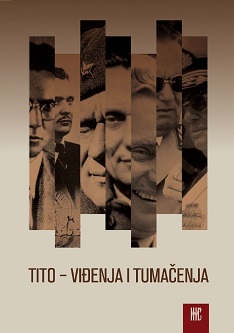„Staro ne smije više nikad da se vrati". Tito i privredna politika FNRJ 1945-1955. godine
„The Old Must Never Come Again". Tito and the Economic Policy 1945-1955
Author(s): Ivana Dobrivojević Tomić
Subject(s): National Economy, Governance, Economic history, Political history, Economic policy, Social development, Economic development
Published by: Institut za noviju istoriju Srbije
Keywords: Yugoslavia; Josip Broz Tito; industrialization; Five Years Plan; living standard;
Summary/Abstract: Emulating the Soviet model, the Yugoslav communists started industrialization in a hurry. The Five Years Plan envisaged megalomaniac investment in heavy industry and economic strategists of the Party believed Yugoslavia would overtake Great Britain in ten years. The poor state couldn’t take such investment effort so that the economic policy of the government generated general poverty and slump in agrarian production. Just how the Yugoslav attempt at industrialization and economic potential of the country were mismatched is shown by the fact that the regime received from the West alone $ 500 million in economic aid and $ 800 million dollars in, mostly short- and middle-termed, loans which also didn’t suffice to complete the key projects. Having realized already by 1953 the political consequences of an expensive industrialization, Tito started announcing scaling down of investments, larger investment in agriculture and the rise of living standards. Although an end was put to building of crucial object the Yugoslavs lived no better in 1956 since the costs of living of a four-member family were by 40 to 60% higher than nominal wages.
Book: Tito - Viđenja i tumačenja
- Page Range: 347-359
- Page Count: 13
- Publication Year: 2011
- Language: Serbian
- Content File-PDF

